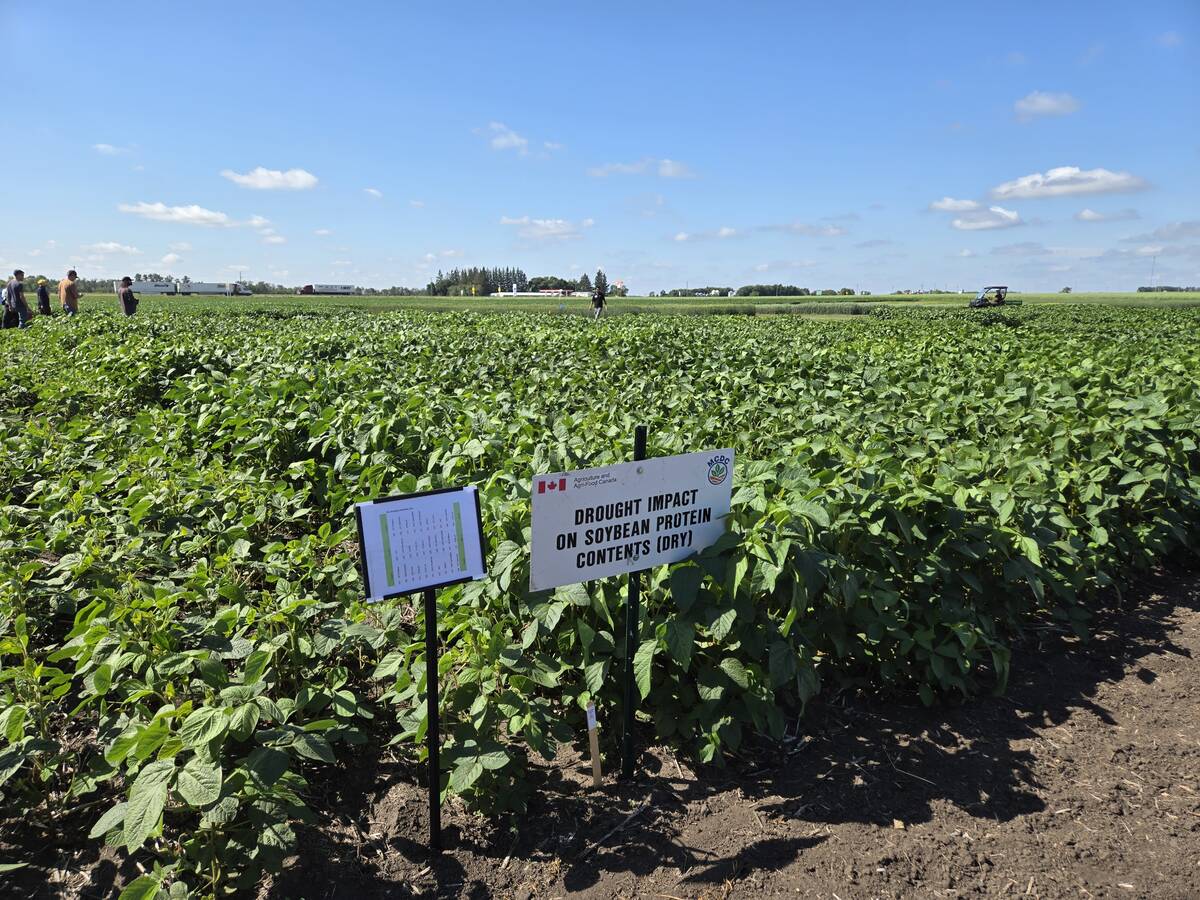Congratulations on your appointment as agriculture minister. Now, where’s the money?
The message won’t be quite that blunt but the intent will be similar when farm leaders meet the next agriculture minister after he or she is sworn into office Feb. 6.
During the campaign for the Jan. 23 election, the victorious Conservatives promised to honour the Liberal pledge to send $755 million to grains and oilseeds producers this winter. The Conservatives also promised to top up Liberal spending by $500 million each year, in addition to statutory safety net spending.
Read Also

Carberry field day looks for agriculture solutions
Manitoba farmers explored research solutions for resilient crops, perpetual agronomic issues and new kinds of agricultural products at a field day at the Manitoba Crop Diversification Centre in Carberry on Aug. 6.
Canadian Federation of Agriculture president Bob Friesen says there are long-term issues the new government faces, including redesigning the entire safety net system in consultation with farmers, but the immediate issue for the new minister is farmer cash flow.
“CFA members are asking the $500 million to be added to the $755 million and begin flowing immediately in recognition of the farm income crisis,” Friesen said in a statement welcoming the new Conservatives to Parliament Hill. “This short-term money is a down payment on the long-term strategy, the Canadian Farm Bill CFA plans to develop in partnership with the government.”
In the name of Ontario’s United Voice farmer coalition, Ontario Federation of Agriculture president Ron Bonnett said Ontario farmers who voted overwhelmingly for the Conservatives expect quick action on their demand for hundreds of millions of dollars in emergency funding to give them a comparable level of public support as their American competitors.
“Our farmers have used up much of their equity and our business partners in rural Ontario are faced with losses as producers are unable to pay their accounts,” said Bonnett in a United Voice statement. “This rural economic crisis must be a priority of both levels of government.”
It is a small taste of the pressure the new minister will be under to deliver the goods.
Parliament Hill speculation on the new minister ranges from Ontario MP and agriculture critic Diane Finley to southern Alberta MP Ted Menzies to a Quebec dark horse from one of the 10 rural ridings that voted Conservative. Prime minister-designate Stephen Harper has a wealth of rural and farm connected MPs from across the country to choose from.
Brian Pallister, thrice-elected MP from Manitoba, took himself out of the running last week by announcing he was not a candidate for cabinet because he is pondering a return to Manitoba provincial politics to pursue the job of Manitoba Progressive Conservative party leader.
Prince Edward Island MP Wayne Easter, likely to be the agriculture critic for the opposition Liberals, said in an interview the Conservatives will have a difficult time turning their vague election promises and House of Commons criticisms into policy that satisfies farmers who are expecting much.
“It will be interesting after all these years of nothing but negative in the Commons if they can accept the responsibilities of governing,” he said in a Jan. 30 interview. “They have promised to replace CAIS (the Canadian Agricultural Income Stabilization program) but with what? They had better get money flowing by April before seeding or they will have problems.”














